Artworks Groupies
 A second Monday of the MonthWriters Group
A second Monday of the MonthWriters GroupThis month we'd like you to meet one of our writers.
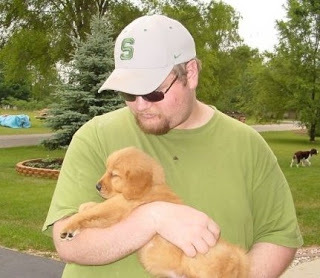 Christopher Rizzo lives in Big Rapids Michigan. He recently graduated from Ferris State University with a degree in Dental Hygiene and is currently working for a subbing agency in Grand Rapids.
Christopher Rizzo lives in Big Rapids Michigan. He recently graduated from Ferris State University with a degree in Dental Hygiene and is currently working for a subbing agency in Grand Rapids.Christopher is a member of Artworks every other Monday writing group. His current work in progress is a yet-to-be-named science fiction novel. He also has plans for several other stories in the fantasy, adventure, and horror genres. All of which blend the feeling of realism with fantasy. In the next few years he hopes to have his first novel published.

"Don’t Call Me Honey.”
Author Théa Heying
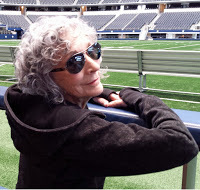 Théa lives on the Muskegon River near Big Rapids, Michigan. She is a member of Artworks Writers’ Group and is working on The Dollarville Bus: Memories of Growing Up in Michigan’s Upper Peninsula, and Superior Stalker, a novel. She brings to the table her Yooper childhood, ripe for the cherry picking, a soft spot for oddball families, earned from her own near and dear, and a passion for understanding how people heal, gained from her work as a clinical social worker. She has contributed to Michigan History Magazine, Family Safety and Health, and various Michigan newspapers.
Théa lives on the Muskegon River near Big Rapids, Michigan. She is a member of Artworks Writers’ Group and is working on The Dollarville Bus: Memories of Growing Up in Michigan’s Upper Peninsula, and Superior Stalker, a novel. She brings to the table her Yooper childhood, ripe for the cherry picking, a soft spot for oddball families, earned from her own near and dear, and a passion for understanding how people heal, gained from her work as a clinical social worker. She has contributed to Michigan History Magazine, Family Safety and Health, and various Michigan newspapers. Don’t Call Me “Honey” I ignored the grumpy expression on the face of the woman with the syringe as she stepped behind me to inject the vaccine. I should have yanked down my sleeve and run like hell. Too late. She grabbed a hunk of my upper arm alongside my shoulder bone, tightened her grip, jammed the needle into my flesh, and pumped it deeper and deeper, while squeezing the muscle with her other hand. Finally she pushed the plunger and emptied the syringe’s contents, setting what I consider my all-time record for nastiest stick.
“There you go, Hon,” she muttered as she withdrew her weapon. I stood speechless. My arm hurt like crazy, and all I wanted to do was get out of there as fast as I could.
As I pressed the elevator button on my way out, I silently snapped back at her, “ I am not your honey! It’s Mrs. Heying to you. Got that?” Maybe she was trying to be nice, another part of me argued. She felt sorry for me, or maybe remorseful she handled me so roughly. Then I figured, no way. She’s covering up for manhandling me, and she thinks calling me Honey will sweeten my experience.
Honey, or Hon, an endearment among family and friends, has become common parlance in medical settings. In a clinic or a hospital it can be a kind word offered to comfort. But only too often it becomes offhanded one-upmanship, disguised as a caring gesture. I do not address the receptionist, or the clerk or my doctor as Honey. Why should they do it to me?
My brother, Joe, a Vietnam Vet, phoned me recently in a burst of gratitude for a life changing experience at the VA hospital. “You wouldn’t believe it!” he enthused. “Two hours of getting the information into the system, going through the tests, and meeting with the doctor, who gave me at least twenty minutes of her time and knew what she was talking about. And everyone called me sir, or mister or Joe. In two whole hours, nobody there called me Hon!”
In the final stages of her ovarian cancer, my sister Ann’s port delivered her medication. Placing the port had been tedious and painful; keeping it open required attention and skill. The chemotherapy tech blew it. “Sorry, Hon,” she offered by way of apology for the hours of misery my sister would suffer in order to correct her botched job.
Disrespect isn’t limited to phony endearments. The assumption a person prefers to be called by his or her first name, or nickname, is just that—an assumption. For some people the formality of titles lends structure to an anxiety producing encounter. I am happy not to call my doctor by his first name, even though I like him and feel comfortable in his presence. It’s not what you’d call a chummy relationship; it’s friendly and business-like with a touch of his compassion and my regard for his competence. If I called the man John it would confuse things.
As a former healthcare worker I am not exempt from having used overly familiar direct address. I’ll call the dialysis patient Jane Jackson. She was my client, and in the spirit of what I (and others) at the time thought relaxed informality, I dropped her surname and used her given name on the unit. “Jane,” I said, and went on with what I had to tell her.
She pulled herself into an imperious stance and retorted, “You know, I just LOVE to be called Mrs. Jackson!”
“What would you like to be called?” removes the guesswork and honors individual preferences. The likely answer will be, call me by my first name. But, if you put the question to me and I reply, “I just LOVE to be called Mrs. Heying,” well, how hard can that be?
Author Nan Sanders Pokerwinski Nan is a member of Artworks writer's group. She's a former journalist, writes memoir and personal essays, makes collages and likes to play outside. She lives in West Michigan with her husband, Ray.
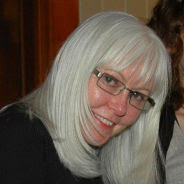 A former science writer for the Detroit Free Press and the University of Michigan News Service, Nan has also written (under the byline Nancy Ross-Flanigan) for Dallas Morning News, Health, Fitness, More, Alternative Medicine, Arthritis Today, Science News and other print and online publications.She's currently pursuing publication of a memoir, Mango Rash: Survival Lessons in the Land of Frangipani and Fanta, excerpts of which were finalists for the 2015 Tucson Festival of Books Literary Awards and Northern Colorado Writers Top of the Mountain Book Award and have been published in Colere.
A former science writer for the Detroit Free Press and the University of Michigan News Service, Nan has also written (under the byline Nancy Ross-Flanigan) for Dallas Morning News, Health, Fitness, More, Alternative Medicine, Arthritis Today, Science News and other print and online publications.She's currently pursuing publication of a memoir, Mango Rash: Survival Lessons in the Land of Frangipani and Fanta, excerpts of which were finalists for the 2015 Tucson Festival of Books Literary Awards and Northern Colorado Writers Top of the Mountain Book Award and have been published in Colere.
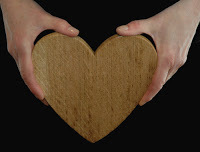
HeartWood A blog about cultivating
creativity, connection and contentment
wherever you are
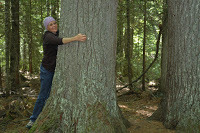 Nan recently launched a blog, HeartWood with the theme of cultivating creativity, connection and contentment. She plans to highlight local artists, writers and other creative types, as well as bring in examples from other locations. In addition to profiling interesting people and projects, Nan hopes to include virtual tours of studios, unusual gardens and innovative dwellings. (Suggestions welcome!)Connect with Nan on Facebook.
Nan recently launched a blog, HeartWood with the theme of cultivating creativity, connection and contentment. She plans to highlight local artists, writers and other creative types, as well as bring in examples from other locations. In addition to profiling interesting people and projects, Nan hopes to include virtual tours of studios, unusual gardens and innovative dwellings. (Suggestions welcome!)Connect with Nan on Facebook.
Published on April 15, 2016 12:11
No comments have been added yet.



